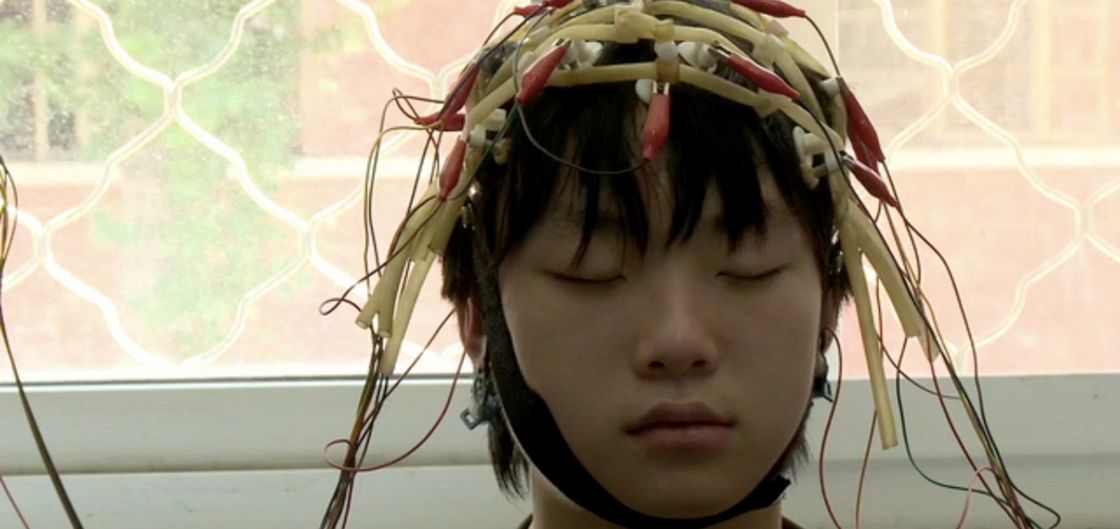
“Reality is too fake.” In one go, a troubled young man admitted to the internet addiction clinic featured in Web Junkie sums up the issue it’s most keen to grapple with. Shot in a place styled as both a psychiatric ward and disciplinary cadet camp, it has a laudable focus on the situational fallout of the drug rather than the drug itself. Through tactful observation, we witness the painful expunging of angst from poisoned family units, and their poignant, fierce, and remarkably tender journey back to authenticity.
Presented as a 75-minute locational snapshot, we get a decent sense of the diversion and punishment forced upon the camo-wearing patients of the facility. A few individual boys1are given names and screentime, to sketch out their recovery timelines and to land emotional hits through the speed bumps they encounter along the way. Certainly it would have been predictable for Web Junkie to criticise the online-gaming corporations that ensnare them, particularly given that Super Size Me helmer Morgan Spurlock has an executive producer credit. Instead, it gratifyingly asserts that tracking their idle routines speak greater volumes. Interviewers are heard very sparsely, only when they need to gently prod the subjects into flippant but telling conversations, and the film sings even better when they are silently watching from smartly chosen angles. Even the quiet harmony of a pair of lads washing clothes together, or one particularly ferocious and well-cut group therapy session, paints a stark picture of the war they wage with their own perceptual dissonance and lack of empathy.
In touching upon more widespread problems, Web Junkie invokes the China’s population control policy and cultural fixation with academia, and how both these social institutions are kindling fires of familial discontent.2 The youths are lonely outcasts that find solace in each other when their unsympathetic and demanding parents fail them, and since many mothers and fathers are at the camp with them, the movie inspects their defensive and frustrated attempts to comprehend the situation. They are plagued by their own unmet expectations, and complain about how their offspring address elders and use the privilege they’ve been afforded. This displeasure with the new Chinese society is most confounding when we hear an adult instructor ask his young charges to determine whether computers are a toy or a tool, as though saying “tool” were such a telltale sign of self-delusion rather than the overwhelmingly common response of a tech-integrated middle class. The movie smartly balances that confusion and amiguity is with scrutiny of the parents that perpetuate it, and in the end capitalises on that intelligence with deeply intimate film-making.
